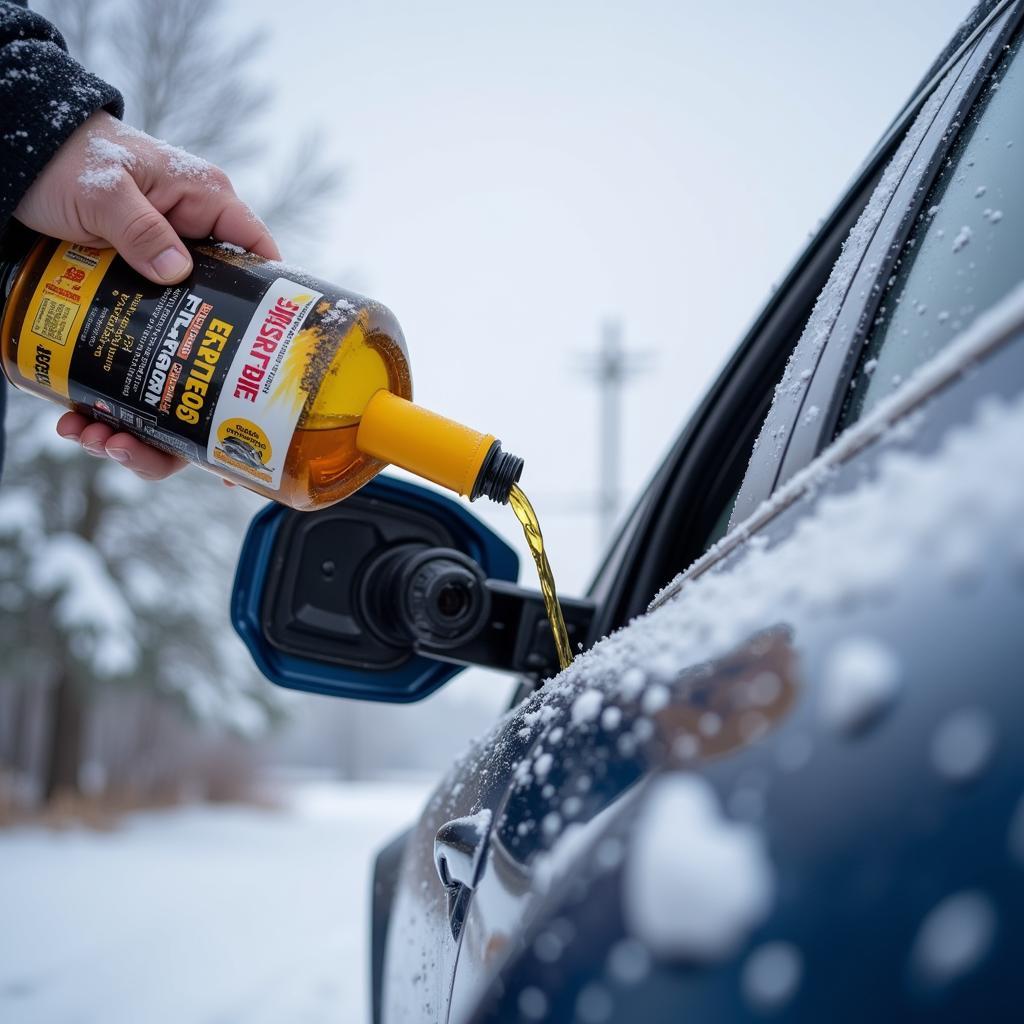Winter’s icy grip can bring a unique set of challenges for car owners. From frozen engines to sluggish batteries, Common Car Problems In The Cold can leave you stranded and frustrated. Understanding these issues and taking preventative measures can save you time, money, and headaches during the colder months. This article will address the most frequent cold-weather car woes and offer practical solutions to keep your vehicle running smoothly, even when the temperature drops.
Dealing with a car that won’t start on a frigid morning is a common experience. One potential culprit could be a weak battery. Cold temperatures can significantly reduce a battery’s cranking power. Another issue might be thickened engine oil, making it harder for the engine to turn over. Furthermore, fuel lines can freeze, preventing fuel from reaching the engine. Knowing how to troubleshoot these problems can be a lifesaver. For more information on starting issues, check out this resource on car starting problem solution.
Why is My Car Battery Affected by the Cold?
Cold temperatures slow down the chemical reactions inside your car battery, reducing its ability to deliver the necessary power to start your engine. This is particularly true for older batteries that are nearing the end of their lifespan. Regular battery testing is crucial, especially as winter approaches.
How to Test Your Car Battery
A simple voltmeter can be used to test your battery’s voltage. A fully charged battery should read around 12.6 volts. If the reading is significantly lower, it might be time for a replacement.
What are the Common Cold Weather Car Starting Problems?
Aside from battery issues, several other problems can plague your car in cold weather. These include thickened engine oil, frozen fuel lines, and tire pressure fluctuations.
Thickened Engine Oil
In cold temperatures, engine oil becomes thicker, making it more difficult for the engine to turn over. Using the correct viscosity oil recommended for your vehicle is essential for optimal performance in winter. You might also consider using a block heater to keep the engine warm overnight. For more on car problems related to overheating and antifreeze, see car problems engine overheating anti freeze.
Frozen Fuel Lines
Water condensation in your fuel lines can freeze in sub-zero temperatures, blocking the flow of fuel to the engine. Using a fuel additive designed to prevent fuel line freeze-up can help avoid this issue.
 Preventing frozen fuel lines in winter
Preventing frozen fuel lines in winter
How Can I Prevent Common Car Problems in the Cold?
Prevention is always better than cure. Taking a few proactive steps can save you from the hassle of dealing with common car problems in the cold.
Winter Car Maintenance Checklist
- Battery Check: Have your battery tested and replaced if necessary.
- Oil Change: Use the correct viscosity oil for winter conditions.
- Tire Pressure: Check and adjust tire pressure regularly as temperatures fluctuate.
- Coolant Levels: Ensure your coolant is topped off and contains the proper mixture of antifreeze.
- Fuel Additive: Use a fuel additive to prevent fuel line freeze-up.
“Regular maintenance is key to avoiding cold-weather car problems,” says automotive expert, Robert Johnson, ASE Certified Master Technician. “A little preventative care can go a long way in ensuring your car starts reliably and performs optimally throughout the winter.”
What if My Electric Car Experiences Problems in the Cold?
Electric vehicles also face unique challenges in cold weather. Battery range can decrease significantly, and charging times can increase. For more information on electric car issues, you can check out volkswagen electric car problems. Additionally, problems with gas-powered cars can be explored further in this article problem with gas cars.
“Extreme cold can impact the performance of electric car batteries,” explains Emily Carter, an electrical engineer specializing in EV technology. “It’s important to be aware of these limitations and plan accordingly during winter months.”
Addressing these issues before they arise can keep your car running smoothly all winter long. Don’t let the cold weather leave you stranded! For audio related problems, especially during cold weather, check this resource on pioneer car stereo mute problem.
Conclusion
Common car problems in the cold can be a real nuisance, but with a bit of preparation and knowledge, you can keep your vehicle on the road throughout the winter. From battery issues to frozen fuel lines, understanding the common pitfalls and taking proactive measures will ensure a smoother and more reliable driving experience. Remember to check your battery, use the right oil viscosity, maintain proper tire pressure, and consider using a fuel additive. If you need further assistance or have any questions, feel free to contact us at AutoTipPro. Our phone number is +1 (641) 206-8880 and our office is located at 500 N St Mary’s St, San Antonio, TX 78205, United States.







Leave a Reply